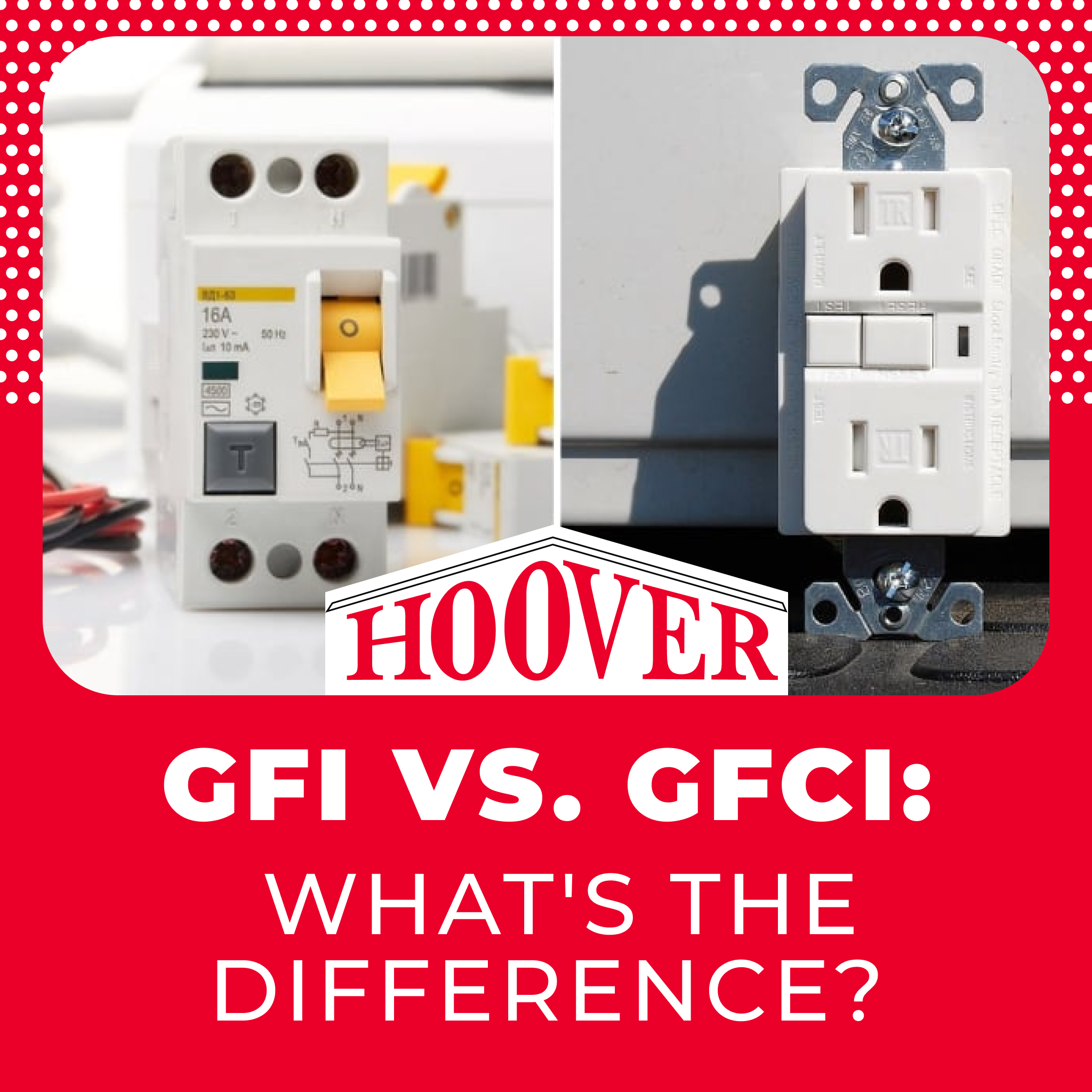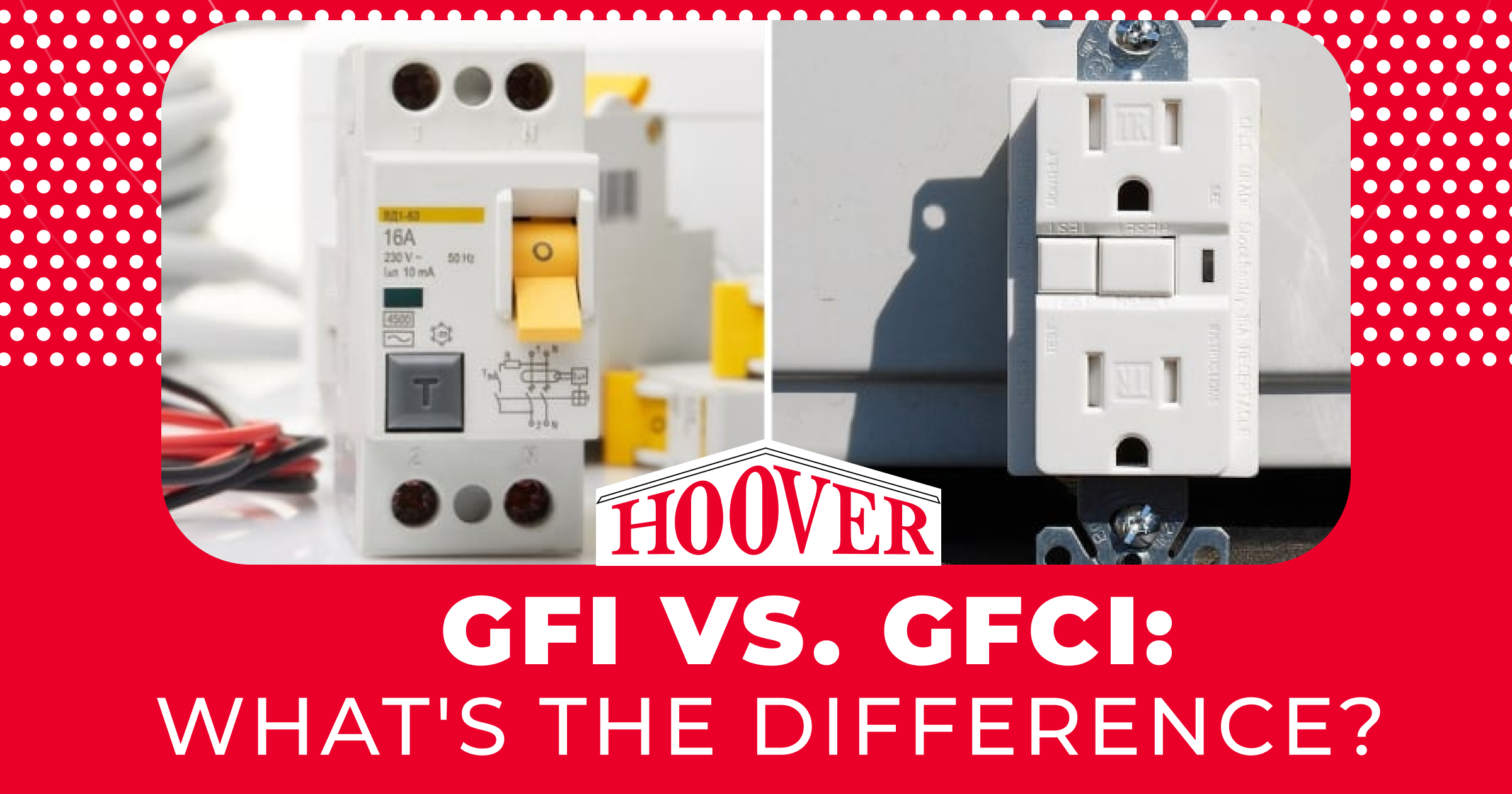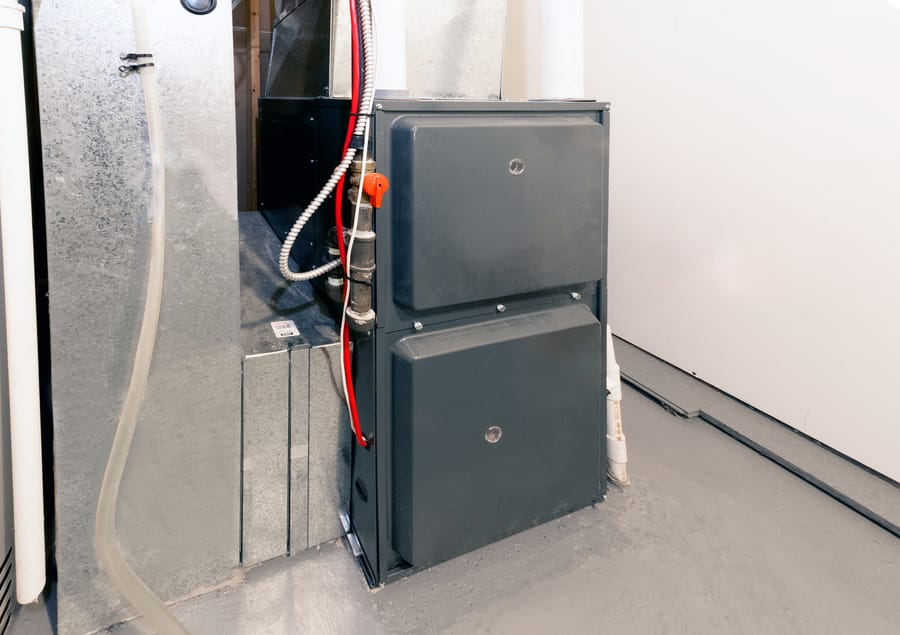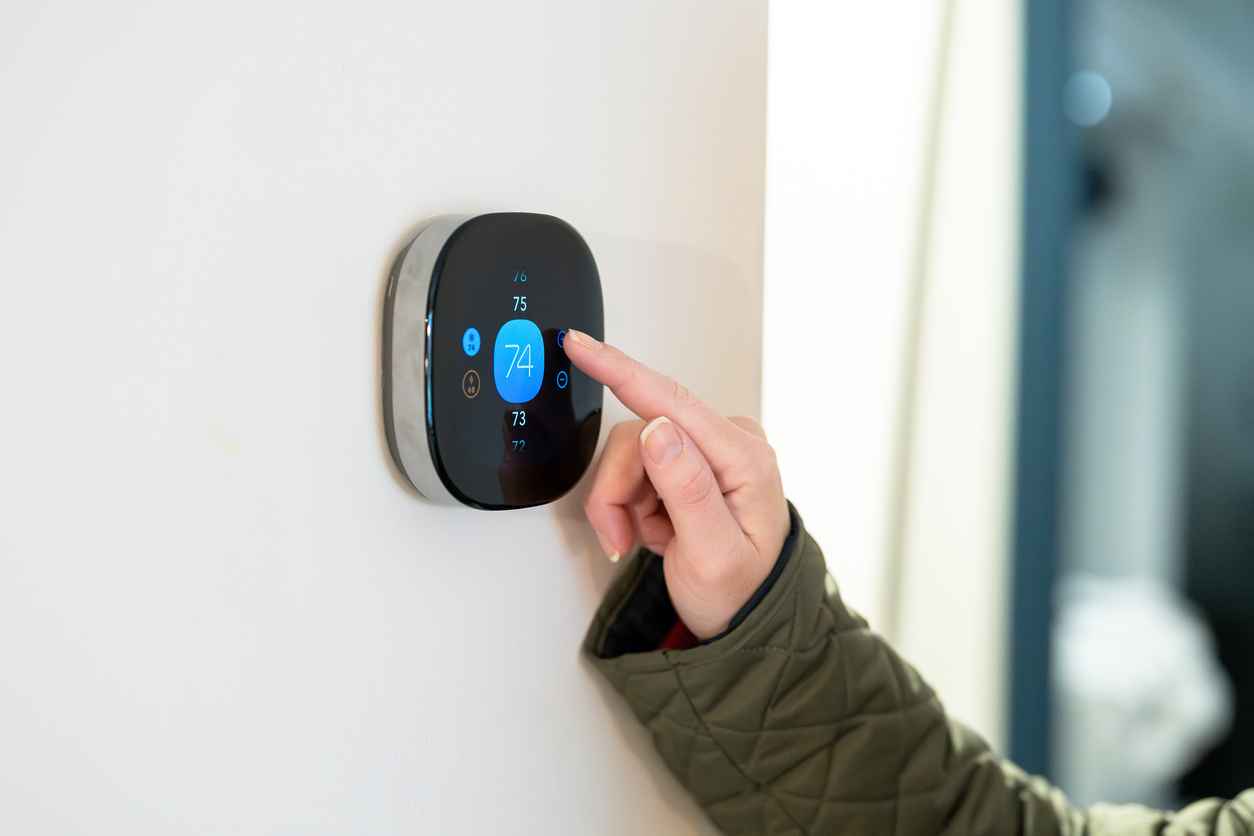Proudly Serving Southeast Michigan
GFI vs. GFCI: What’s the Difference?

Key Takeaways
- The differences between a GFI and a GFCI outlet are minor. Both are designed to prevent electrocution in wet areas of the home.
- These specialized outlets are required in specific areas to prevent a hazard called a ground fault, which may cause an electrical shock.
- It is recommended that you hire a licensed electrician to determine whether you already have these outlets or need them installed.
GFI vs. GFCI: Quick Explanation for Homeowners
A ground fault, or “ground fault condition,” is an electrical hazard that can occur in any Troy, MI area home or commercial property, and it takes place when electricity is diverted from its intended path. When this happens, it can cause a dangerous electric shock or even a fatal electrocution. Fortunately, specialized devices called GFI or GFCI outlets are available to prevent this. The team at Hoover Electric, Plumbing, Heating, and Cooling has some helpful information about the differences between a GFI vs. GFCI to keep you safe.
What Is a GFCI Outlet?
What is a GFCI outlet? These specialized electrical outlets are designed to shut off the power whenever they detect a ground fault to prevent injury.
How a GFCI works
Here’s more detailed information about how GFCI outlets work:
- The GFCI constantly monitors electrical current, or the flow of electricity, to detect current leakage.
- When the GFCI detects an imbalance (or ground fault), it immediately shuts off the power to that outlet.
- Using GFCI outlets helps to prevent electrical shock in wet areas of the home.
Common areas where GFCIs are required
GFCIs must be installed in certain areas to meet electrical code, including:
- Kitchens
- Bathrooms
- Laundry rooms
- Outdoor outlets
- Garages and basements
What’s the Difference Between GFI and GFCI?
So, what is a GFI outlet, and what’s the difference between GFI and GFCI? Here is a simple breakdown of the differences between these two outlet terms:
- GFI = Ground Fault Interrupter.
- GFCI = Ground Fault Circuit Interrupter.
- The term GFI is often used to describe outlets only.
- GFCI can refer to outlets, breakers, or receptacles.
- A GFI vs. GFCI breaker refers to the specific breakers installed in your electrical panel that correspond to the individual outlets.
Are GFI and GFCI Interchangeable?
Since both of these terms describe an electrical component designed to prevent electrocution, they’re essentially interchangeable. Functionally, both of these items are the same and serve the same purpose. The biggest difference is mostly in the terminology for each, as they could be called either term, depending on different regions. Additionally, some manufacturers label outlets as GFI, while others may label them as GFCI.
How Do I Know If I Have GFCI Protection?
Follow these tips to determine whether you have GFCI protection in your house.
- Look for “TEST” and “RESET” buttons on your outlets. These typically indicate whether the outlet is GFI or GFCI.
- Use a GFCI tester device, which can be purchased at most home improvement stores.
- Check your electrical panel and look for GFCI breakers.
- Hire a licensed electrician near me to inspect your home and confirm which outlets are GFCI.
Should I Upgrade to GFCI Outlets?
There are several reasons to upgrade to GFCI outlets if you don’t currently have them in your home.
Safety benefits
- GFCI outlets provide immediate protection from ground faults.
- Installing these outlets in wet areas reduces the risk of electric shock.
- Having these outlets ensures that your home meets modern electrical code.
Code compliance in Michigan homes
- GFCIs or GFIs are required by the National Electrical Code (NEC) in all wet or damp areas.
- Older homes should be retrofitted and upgraded to GFCIs.
- Having these outlets installed in the appropriate areas is helpful for homeowners selling or remodeling their homes.
Can I Install a GFCI Outlet Myself?
If you decide to try and install a GFCI outlet yourself, keep these tips in mind.
- These outlets are DIY-friendly if you take the proper precautions.
- Always shut off the power at the electrical panel before beginning installation.
- Installing a GFCI outlet requires basic electrical knowledge, and it requires additional ground wiring in the electrical panel.
- When in doubt, it’s always best to hire an experienced, licensed electrician to make sure the outlets are installed correctly.
Why Choose Hoover for Electrical Upgrades in Troy, MI?
There are many reasons to choose Hoover for your electrical upgrade needs in Troy, MI, including:
- Our easy financing options and savings: Hoover offers flexible financing options as well as discounts and specials to help make paying for our services easy and affordable.
- Our commitment to satisfaction: At Hoover, we provide courteous, professional services with an unwavering commitment to quality, guaranteeing your full satisfaction with every job we complete.
- Our honest pricing: We provide free estimates and use a job-cost system to control the cost of our services, so you’re always getting the best value around.
- Our experienced team: Hoover has been in business since 1980, and we make sure that our technicians stay up to date with all of the most current technologies and methodologies in our industry.
Service Areas: Electrical Services in Troy, MI
We proudly serve all of Troy and the surrounding neighborhoods.
Zip codes covered:
- 48007
- 48083
- 48084
- 48085
- 48098
- 48099
Contact Hoover Today!
Using GFCI or GFI outlets is a smart way to protect yourself and your family from accidental electrical shock. Hoover Electric, Plumbing, Heating, and Cooling is available to help with all of your electrical needs in Troy, MI, and beyond. Contact us today to schedule service!
Frequently Asked Questions
Why are GFCI outlets important for home safety?
GFCI outlets are important for home safety because they interrupt the flow of electrical current when a ground fault is detected to prevent injuries like electrical shock. They’re particularly important in wet areas where ground faults are more common.
Where should GFCI outlets be installed in a house?
GFCI outlets should be installed wherever moisture or water is present or potentially present. This includes kitchens, bathrooms, laundry rooms, basements, and outdoor outlets, such as in sheds or garages.
Is it safe to install a GFCI outlet on a two-wire system?
While using a separate ground wire is preferred, it is safe to install a GFCI outlet on a two-wire system. GFCIs do not need a ground wire to function as intended because an internal mechanism automatically detects any changes in the flow of electrical current.
When You Want It Done Right
Call Hoover!
Our electrical, plumbing, heating, & cooling professionals offer all the services you need under one roof.



